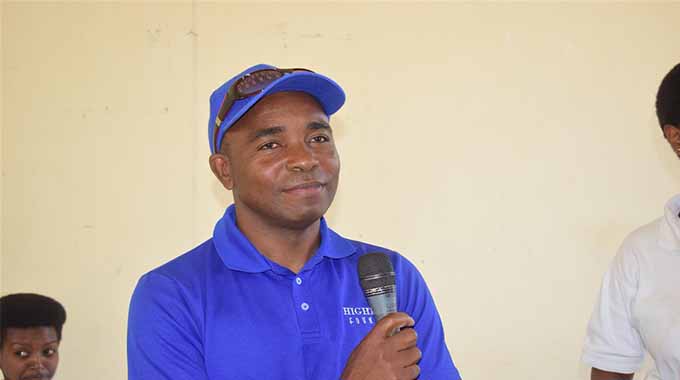Letters to the editor: Key lessons from the Youth Indaba

Leroy Dzenga
The Zimbabwe National Youth Indaba held last week set a template of what non-partisan conversations can achieve.
Young people came from different spheres to converge and brainstorm, exchange ideas on how they imagine the future of this country to be.
Some thought the turnout was going to be low as the marketing of the event was not as aggressive but on both days the organisers had to make provisional adjustments as the numbers had exceeded projections.
This was testament to the real appetite among youths to take part in critical dialogue that determines their future.
The format of the indaba itself also helped with the retention of ideas from all attendees unlike in the past where the selected speakers would appear, have conversations on their own with youths merely providing an audience for optics.
Minister Youth, Sport, Arts and Recreation Kirsty Coventry should be credited for the break from the ineffective tradition.
Young people were given the responsibility to organise and structure their own event.
Those who were part of the organising team were nominated through an online process, meaning they were also youth chosen.
The two-day conference had panel discussions which attracted top names like Ecocash CEO Natalie Jabangwe, Spidex Media founder Eugene Peters, continentally renowned child education activist Anoziva Marindire, Zimbabwe cricket captain Hamilton Masakadza and musician Tongai “Greatman” Gwaze among other achieving youths.
The panel discussions spoke to issues which have dominated discourse in recent times like Job Creation, Financial Inclusion, Sustainable Entrepreneurship and Critical Skills in the modern Zimbabwe.
Before and after these discussions, all youths in attendance were grouped into breakaway committees according to their areas of interest which ranged from sports, business, mining and other spaces occupied by youths.
The committee`s contributions were incorporated into the panel discussions as talking points, during the panel discussions the audience would ask questions and afterwards reconvene to give feedback to the conversations.
This vigorous process is what culminated into questions which President Emmerson Mnangagwa responded to on the second leg of the Indaba.
Youths had come together to put their event together, agreed on the format and actively participated in the delivery of conversations.
Besides the inclusive conversations which created a sense of ownership among the youths there was also a seed of inspiration that was planted at the event.
Finance and Economic Development Minister Professor Mthuli Ncube took time out of his schedule to share his incredible journey with the young people who were in attendance.
He spoke on the need to include youths in spaces of high level decision making from an early age.
Prof Ncube spoke of how he registered his first company at 23 and sat on the Zimbabwe Stock Exchange board at the same age.
He credited the late former Finance Minister Dr Bernard Chidzero for having a youth-oriented approach to leading the economy.
In the same vein, President Mnangagwa walked the youths down the memory lane where he spoke of the struggles they faced studying while battling to liberate this country.
President Mnangagwa implored young people to involve themselves directly in conversations that impact their future and utilise opportunities which would have been availed to them.
“We must not just imagine the future we want but more importantly roll up our sleeves and put our shoulders to the wheel to realise the future we want,” said President Mnangagwa.
The youth make up more than 65 percent of the country`s population and the fact that the national leadership is taking time to connect with their ideas is a positive sign.
Many laid out their ideas, which with adequate support can solve some of the problems faced in Zimbabwe.
For instance, a 28-year-old Harare based engineer Farayi Masendo who is running an innovation turning plastic waste into diesel.
The indaba gave platform to his idea where he interacted with potential collaborators on his project.
Many others had the same opportunity, others even bagged mentorship deals.
What we witnessed at the Indaba was only possible because of the non-partisan nature in which the event was run.
It ran on the principle that all youth are equal and important, an idea which enhanced participation.
There will be a follow-up youth expo in a few months to come, a sign of intent that the indaba was not a talk show.
We wait to see if the follow-up will bear fruit but this is a good start to plugging the gap between policy makers and the youth.
Zimbabwe seems to have begun the journey towards harnessing its youth dividend.









Comments